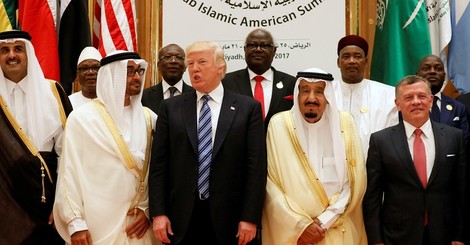Your podcast discovery platform
Curious minds select the most fascinating podcasts from around the world. Discover hand-piqd audio recommendations on your favorite topics.

piqer for: Globalization and politics Global finds
Freelance journalist based in Istanbul. Keeping an eye on Turkish politics and development.
What The U.S. Can Lose In The Qatar Crisis
If the only reason to sanction Qatar were jihadism, Saudi Arabia and UAE would also be sanctioning Kuwait. Maybe, they should be even sanctioning themselves. The Muslim Brotherhood, the closeness to Iran — who Arab countries and Turkey perceive as a threat — and even the Qatar-based Al Jazeera channel have fueled the crisis.
But Americans, Daniel Byman and Willam McCants argue, "should not parrot the talking points of Qatar's critics". Including President Trump and his Twitter account.
“During my recent trip to the Middle East I stated that there can no longer be funding of Radical Ideology. Leaders pointed to Qatar — look!”
Gulf states are crucial in the fight against terrorism. Not only do they provide vital intelligence and fly side-by-side in bombing runs on ISIS targets, but also the U.S. has a major air base in Qatar — the most important in the Middle East — with more than 10,000 personnel stationed there. Picking sides risks jeopardizing cooperation.
Before 9/11, the United States ignored explicit state support for terrorism among the nations of the Gulf: they were channeling money and weapons to Afghanistan, Bosnia, and Chechenia, to name just a few.
Indirect support is still common among the Gulf countries. And they all host hate-spewing clerics.
Despite that, they are valuable allies for the counterterrorism policy since 9/11, and Washington cannot turn its back on them just because of the "narrow interests of its other partners in the region".
Although the authors make some arguable statements about the Middle East and its (lack of) moral purity — as if they were the only ones who show no principles — it is an interesting analysis of the complex framework of global politics.
